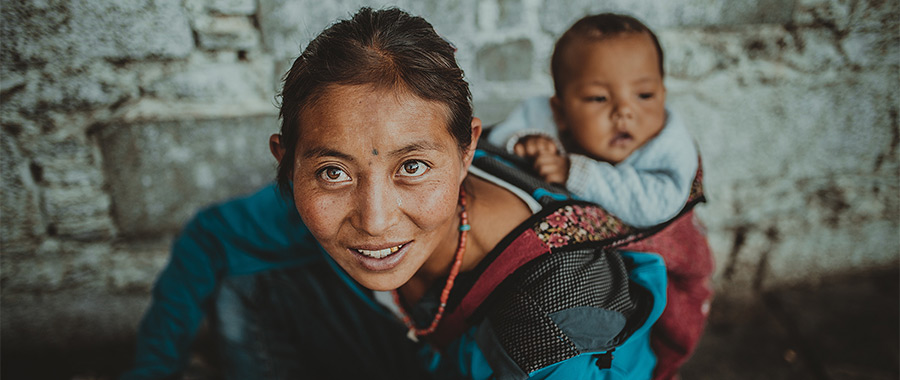In contemporary society, the call for social equity has taken center stage, especially when it pertains to vulnerable populations such as women and children. The teachings of the Baha’i Faith offer a rich tapestry of values and principles that can guide actions towards providing effective social protection for these demographic groups. This perspective is particularly significant as it emphasizes not only the moral imperatives but also the collective responsibility to nurture and uphold the dignity of every individual.
The Baha’i teachings posit that the empowerment of women is essential for the advancement of civilization. This assertion is grounded in the principle that gender equity lays the foundation for the upliftment of society as a whole. In examining historical contexts, one finds that societies that empower women tend to exhibit enhanced levels of economic development, improved health outcomes for families, and greater educational attainment. Therefore, providing social protection for women and children is not merely a philanthropic endeavor; it is a strategic societal necessity that paves the way for holistic progress.
At the core of these teachings is the notion of the oneness of humanity. The Baha’i philosophy asserts that all individuals are collectively responsible for the well-being of others. This is particularly pertinent in the context of social protection, as it transcends mere governmental or institutional frameworks and calls upon community solidarity. The development of community-based initiatives could play a pivotal role in empowering women and children through collaborative efforts that enhance social welfare. By fostering environments where shared responsibilities are embraced, societies can recalibrate their approaches to social protection.
Affording equal access to education emerges as a salient feature in the dialogue surrounding social protection. Educational attainment is a powerful catalyst for socio-economic mobility for both women and children. Baha’i teachings underscore the necessity of universal education, positing that it is a fundamental right that cannot be overlooked. The promotion of educational initiatives specifically tailors itself to the unique needs of girls and young women, equipping them with the skills to navigate and reshape socio-economic landscapes.
Healthcare access remains another critical dimension of social protection. The Baha’i perspective embraces the idea that health is an inalienable right, closely tied to the overall well-being of individuals and communities. In practical terms, this translates to the provision of comprehensive healthcare services that are culturally sensitive and accessible to all, particularly women and children who often face systemic barriers. Hence, advocating for policies that ensure robust healthcare systems reflects the Baha’i understanding of social justice and equitable treatment.
Moreover, addressing economic disparities is integrally connected to the Baha’i vision of social protection. The principle of distributive justice propounded within the Baha’i teachings posits that wealth should not merely accumulate within the hands of the few. Thus, social protection policies must consider mechanisms to redistribute resources in a manner that uplifts those most in need. Investments in skills training, vocational programs, and microfinancing can facilitate economic independence for women, providing them with the tools necessary to support themselves and their families.
Child welfare is another pivotal aspect that merits attention within the realm of social protection. The Baha’i teachings express profound concern for the nurturing of children, recognizing them as the future of society. This places an ethical imperative on adults to safeguard children’s interests, emphasizing the provision of protective legislation and services that ensure their safety and well-being. Initiatives such as nutrition programs, mental health support, and safe housing are integral to creating an environment conducive to healthy development.
Furthermore, the importance of legal frameworks cannot be overstated. The Baha’i principle of the rule of law emphasizes the necessity for just laws that protect the most vulnerable. This includes laws that combat domestic violence, discrimination, and exploitation. Advocating for such legal reforms is essential to establishing the scaffolding for social protection that honors the dignity and rights of women and children alike.
As society navigates the complexities of social protection, it becomes paramount to create inclusive dialogues that invite diverse perspectives, including those of women and children themselves. Ensuring that their voices are heard not only enriches policy-making but also cultivates a sense of ownership and agency among these groups. Participatory approaches reflect the Baha’i commitment to collaboration and community engagement, reinforcing the belief that social change is most effective when it is co-created by those it most profoundly affects.
In conclusion, the Baha’i teachings provide a comprehensive framework for understanding and implementing social protection strategies aimed at uplifting women and children. By embracing principles of equality, justice, and community responsibility, societies can cultivate environments where the potential of every individual is recognized and nurtured. As we explore these teachings, it becomes evident that the shift in perspective towards social protection is not simply a matter of policy but a moral imperative that speaks to the heart of our collective humanity. In this journey towards transformation, let us remain vigilant and committed to fostering a world where every woman and child can thrive.
